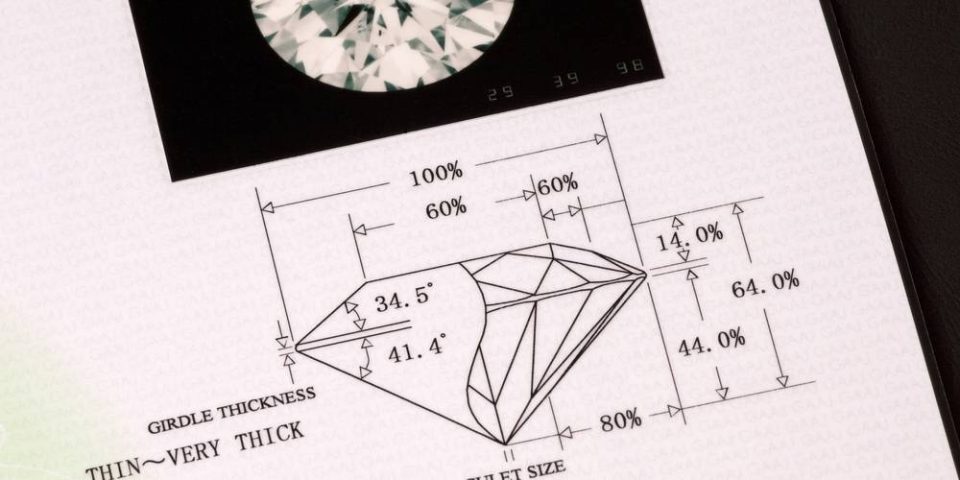When contemplating the sale of a diamond ring, the absence of a certificate can evoke apprehensions. Many may wonder, “Can I sell my diamond ring without certificate?” The straightforward answer is yes, but the nuances of this decision are far more intricate than one might initially assume. Let’s delve into the depths of this topic, unmarred by conventional wisdom.
First, let’s dissect the role of a diamond certificate. A diamond certificate, often issued by reputable laboratories like the Gemological Institute of America (GIA) or the International Gemological Institute (IGI), serves as a testament to the stone’s quality and authenticity. This document details the diamond’s cut, clarity, color, and carat weight. It essentially functions as the ring’s resume, substantiating your stone’s value in a market that is both vast and nuanced. However, its absence does not render your diamond devoid of worth.
Understandably, the prospect of selling a ring without such a seal of approval may seem daunting. One might fear being undervalued or misjudged. Nevertheless, many successful transactions occur without the backing of a certificate. It’s crucial to reframe this conundrum; instead of viewing the absence of a certificate as a disadvantage, consider it a unique opportunity to engage with potential buyers on a personal level.
One of the first steps in navigating this labyrinth is to educate yourself about your diamond. Familiarize yourself with the 4 Cs: cut, clarity, color, and carat. This knowledge serves not only as a foundation for discussions with potential buyers but also empowers you to reclaim authority over the selling process. You might be astonished by how much insight you glean when you scrutinize your diamond closely, possibly even identifying features that make it stand out.
Next, consider the diamond’s marketability. The diamond market can be as elastic as it is convoluted. Factors such as market demand, trends, and even regional preferences play a significant role. Research current market trends to understand how similar diamonds are being priced and sold. This information becomes particularly vital when you lack the backing of a certificate. Assess comparable sales to gain insight into an appropriate asking price.
When it comes to marketing your diamond ring, bragging about its aesthetic charm is as vital as providing transparency about its quality. High-quality images and descriptive language can produce a compelling narrative around your diamond. Leverage platforms like social media, online marketplaces, or local jewelry stores to position your offering attractively. A well-lit photo could capture the stone’s luster, while an artful description could weave a captivating story — possibly even detailing how it was obtained, its sentimental value, or moments shared while wearing it.
Networking within your community can also be tremendously beneficial. Local jewelry shops may not only be interested in purchasing uncollected diamonds but can also offer evaluations. By establishing rapport with a jeweler, you not only open the door for negotiations but also gain valuable insights. Perhaps they can provide a rudimentary assessment based upon their experience, helping to establish a frame of reference as you’ve done your independent research.
In addition, engaging with specialized diamond buyers can be advantageous. These individuals or companies often have vast professional experience and deep market insights. They may seek diamonds without certificates, valuing experience and instinct over formal documentation. Nevertheless, proceed with caution; ensure the buyer is reputable and can justify their offer. Transparency in the sale process helps build trust, and that trust translates into a smoother transaction.
It’s also crucial to consider the emotional implications of selling a diamond ring. For many, these rings encapsulate treasured memories and personal milestones. Therefore, approaching the sale as a form of closure or transitioning can alter one’s perspective. Rather than merely viewing the diamond as an object, recognize it as a chapter in your life that you are ready to close. This mindset can alleviate stress surrounding the sale, enabling you to engage more openly with potential buyers.
Let’s not overlook the potential for consultation with a gemologist. Although it may require an initial financial outlay, investing in a professional opinion could provide valuable insights and ensure your diamond’s characteristics are thoroughly evaluated. This service could serve as a quasi-certificate, enriching your selling narrative and thereby enhancing buyer confidence. Even without an official certificate, a gemologist’s appraisal can lend credibility to your claims about the diamond’s quality.
In summary, while the absence of a diamond certificate may add a layer of complexity to the selling process, it need not be an insurmountable obstacle. With sufficient research, networking, and emotional reframing, selling your diamond ring without a certificate can evolve from a daunting task into an enriching experience. So, instead of asking whether you can sell your diamond ring without a certificate, perhaps the question should be: “How can I turn this uncertainty into an opportunity?” As you embark on this journey, understand that authenticity and transparency are your allies. Own your diamond’s story, and let that illuminate the path to your next chapter.
